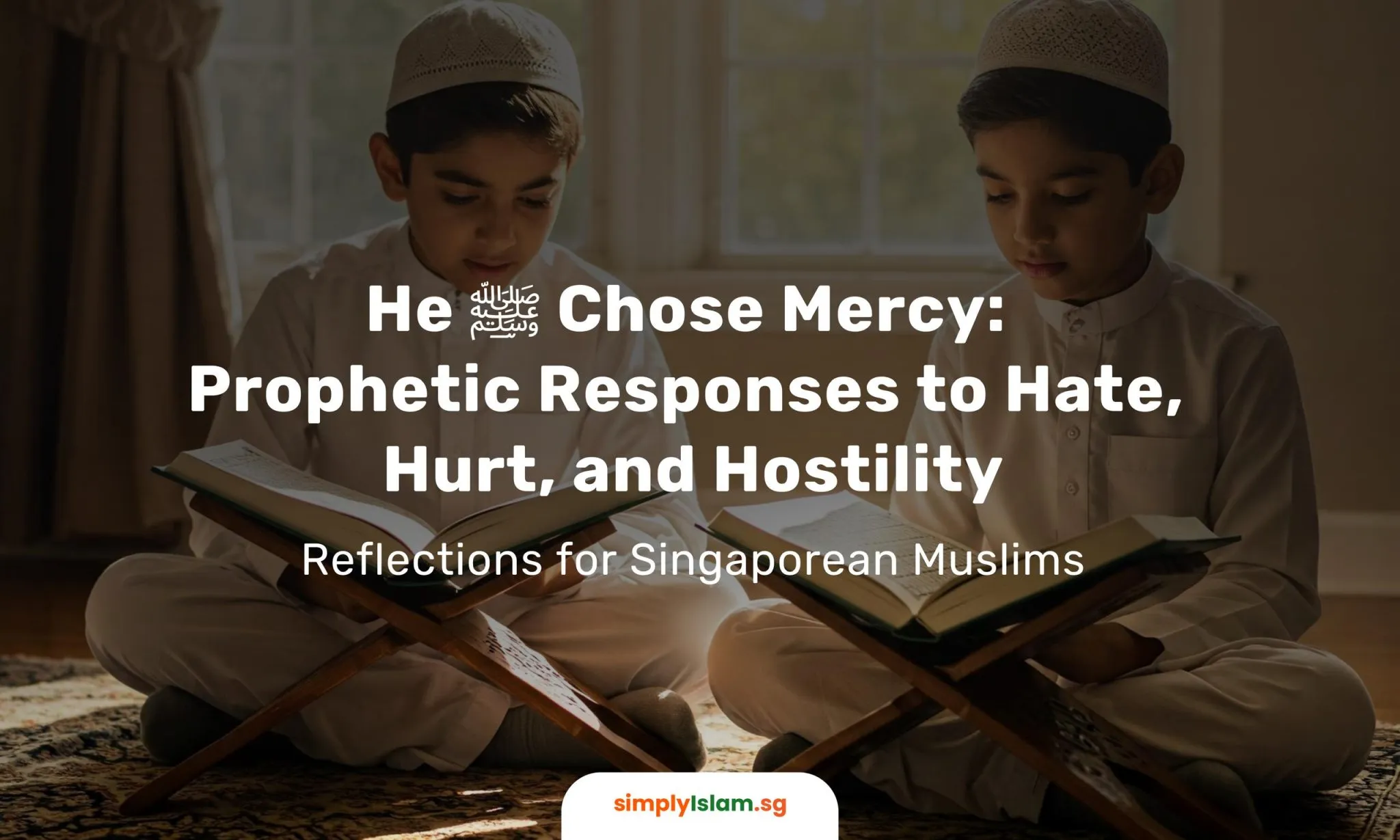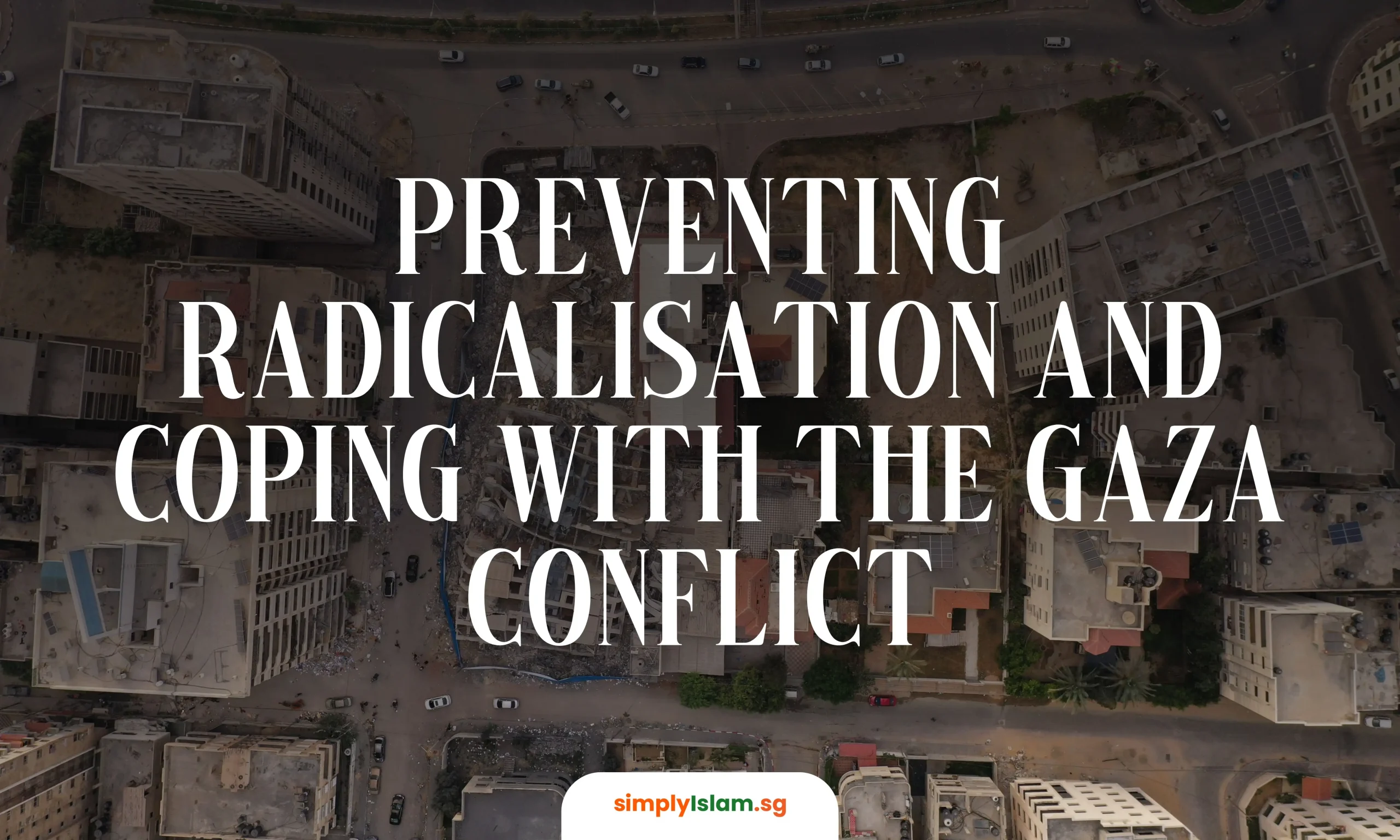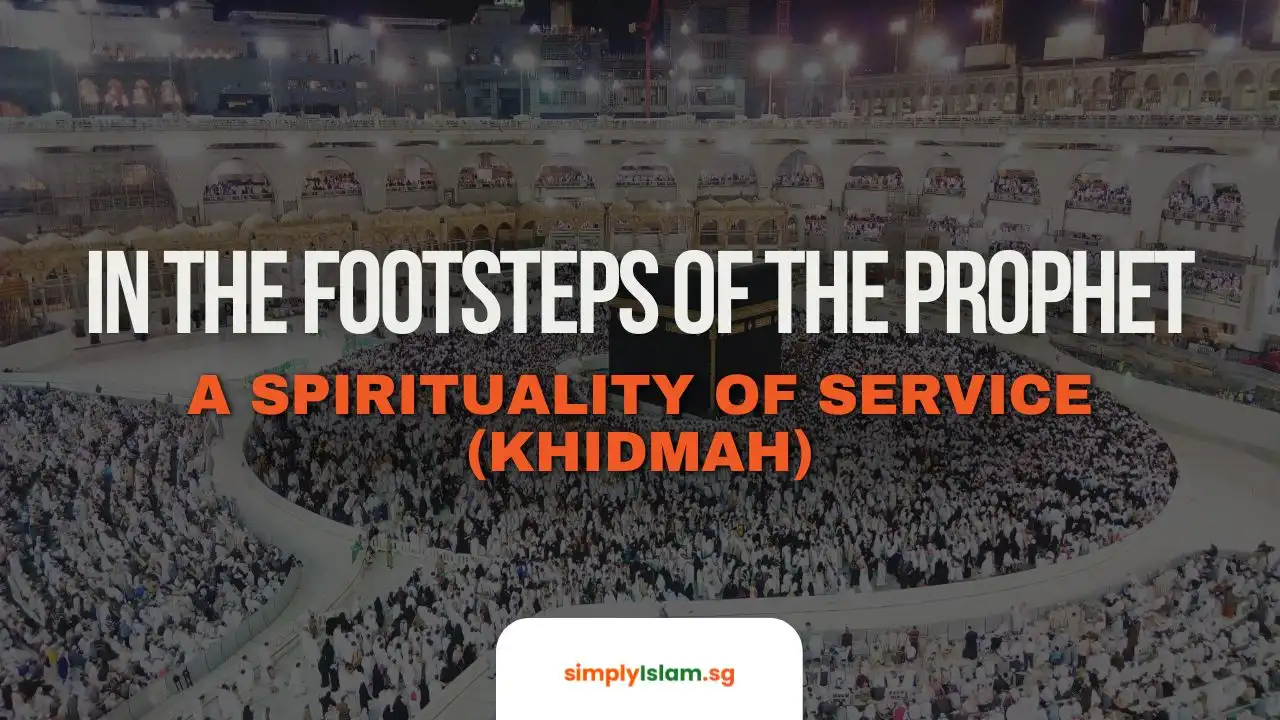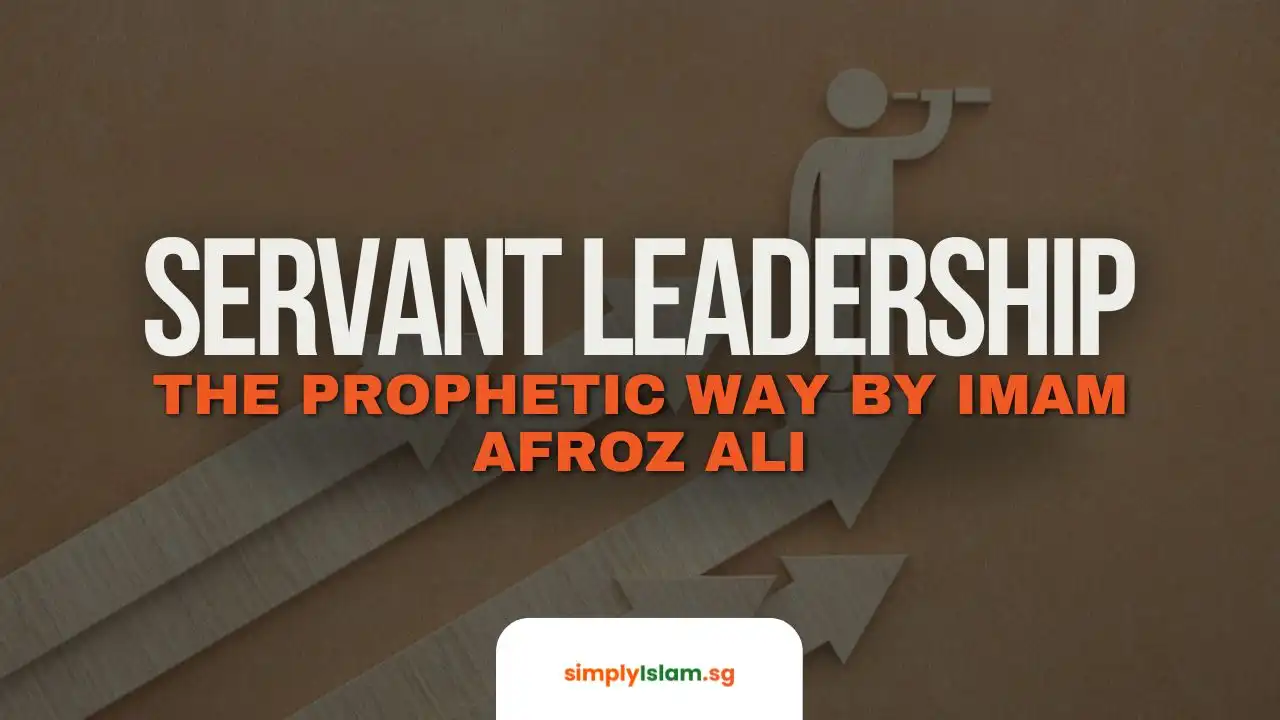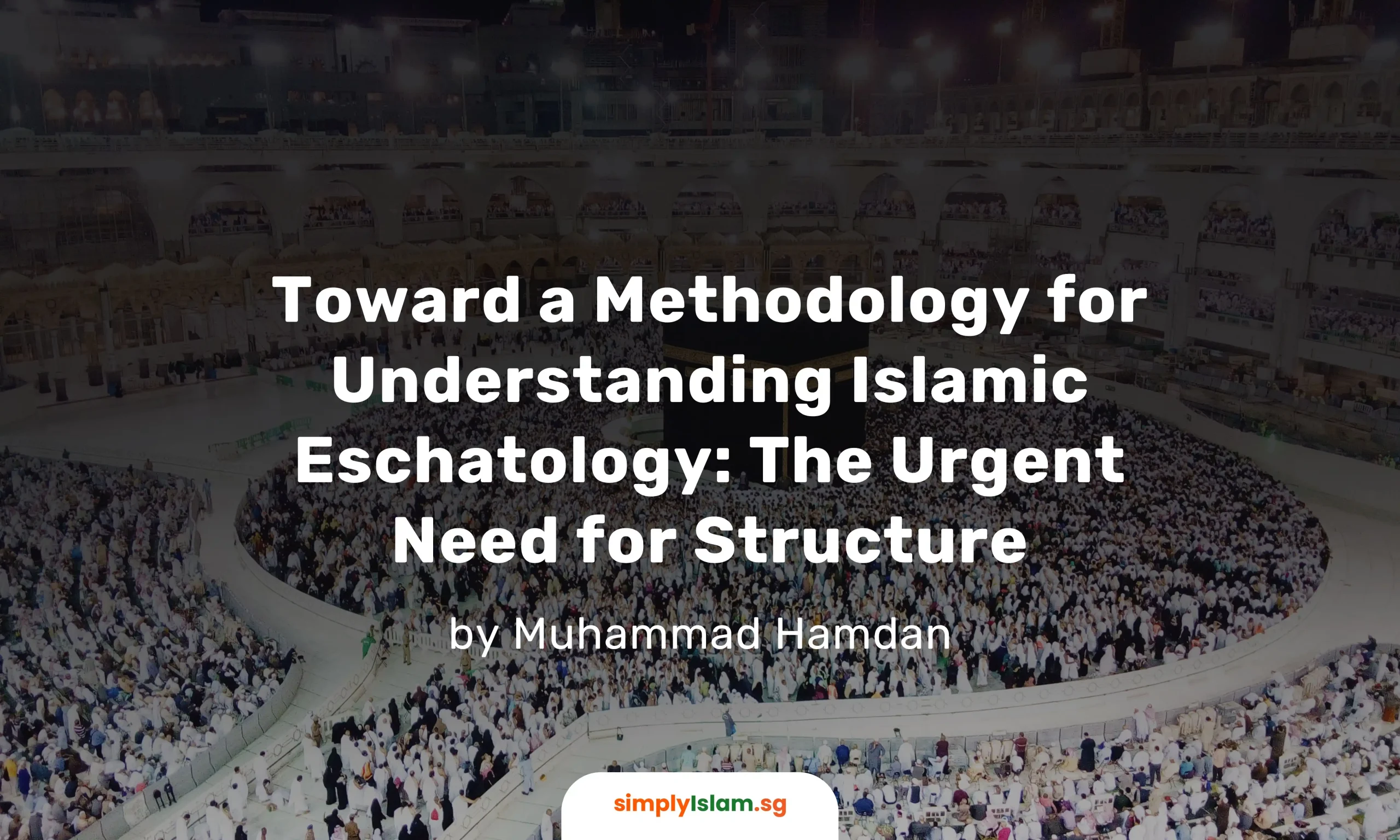
Marriage & Family: Building Relationships of Mercy & Tranquility
He ﷺ Chose Mercy: Prophetic Responses to Hate, Hurt, and Hostility
Reflections for Singaporean Muslims

We hear the words “MERCY”, “TRANQUILITY” and “LOVE” regularly used when we talk about marriage and family in the Qur’an but what do they really mean, and how can we get them or manifest them in our relationships with our spouse, children and parents?
Our relationships are one of the *greatest* ways for us to serve the people around us, learn patience, empathy, compassion, learn about our ego and ultimately worship Allah through the relationships we have, but they can be so difficult and testing. What do we do then?
Shaykh Faid Muhammad Sa’id and Sister Humera Khan will draw upon their many years of counselling and study, and give their valuable insights on how we navigate this big part of our lives.
“And among His signs is that He created spouses from among yourselves for you to live with in tranquillity: He ordained love and mercy between you. There truly are signs in this for those who reflect.” (Quran 30:21)
The above verse of the Holy Quran lay out the framework as to what are the basis, the objectives and the goals of marriage and family in Islam. The verse highlighted three key words “tranquility”, “love” and “mercy”, and these are among the main ingredients for a successful marriage and family.
In fact, the attribute Allah chose to be the supreme for Himself is that He is the Lord and Giver of Mercy (“Ar-Rahman” and “Ar-Rahim”), and this attribute of Mercy is mentioned hundreds of times in the Holy Quran, bringing home the significance for all believers to be merciful.
In a Prophetic tradition Prophet Muhammad, peace and blessings be upon him, mentioned that, “men and women are twin halves of each other”. This also highlights the fact that men and women are created from a single source (Qur’an 4:1). The analogy of the twin halves underlines the reciprocal nature and the interdependent nature of men and women’s relationship.
It is also important that the process of shura or consultation is not neglected or compromised in a family. When one partner makes unilateral decisions and applies dictatorial style of leadership, peace is compromised.
The speaker will speak on the virtues of mercy and how it can be manifested in the relationship among spouses and members of a family, through compassion, forgiveness, caring and humility. The speaker will also discuss on the importance of maintaining consultation and tranquility in our relationships, not only at home, but even externally. Being able to conduct the family life with love, mercy and mutual cooperation and consultation will open the doors for the family to develop tranquility within their home.
The speaker will also share on practical spiritual practices like prayers (salat), Qur’an reading and incantations (dhikr and salawat) that can be undertaken in order to build upon the virtues of a merciful and tranquil marriage and family. The virtues of mercy, love and tranquility, along with the practical spiritual practices, will be helpful in overcoming life’s tragedies, trials and tribulations, which so often rocks a family, and acts as a tool to maintain the state of serenity and tranquility in a family
# BIO – Shaykh Faid Muhammad Sa’id
Shaykh Faid is one of the most prominent Islamic scholars based in the United Kingdom whose efforts include teaching and community outreach work. He is the Director of the Larayb Institute of Education (LiFE), Resident Scholar at the Harrow Central Mosque in North London. He is also a Senior Advisor to the Radical Middle Way, an organisation established in the wake of the London 7/7 attacks, which aims to promote a mainstream, moderate understanding of Islam, as well as equip its audiences with the tools to combat exclusion and violence, and encourage positive civic action.
# BIO – Humera Khan
She is the founding member of An-Nisa Society (UK) and has been working with families, providing support and counselling on a broad range of issues. This has included developing the first accredited Islamic Counselling Course, producing a series of books on sexual health from an Islamic perspective & producing resources on Muslim fatherhood.

